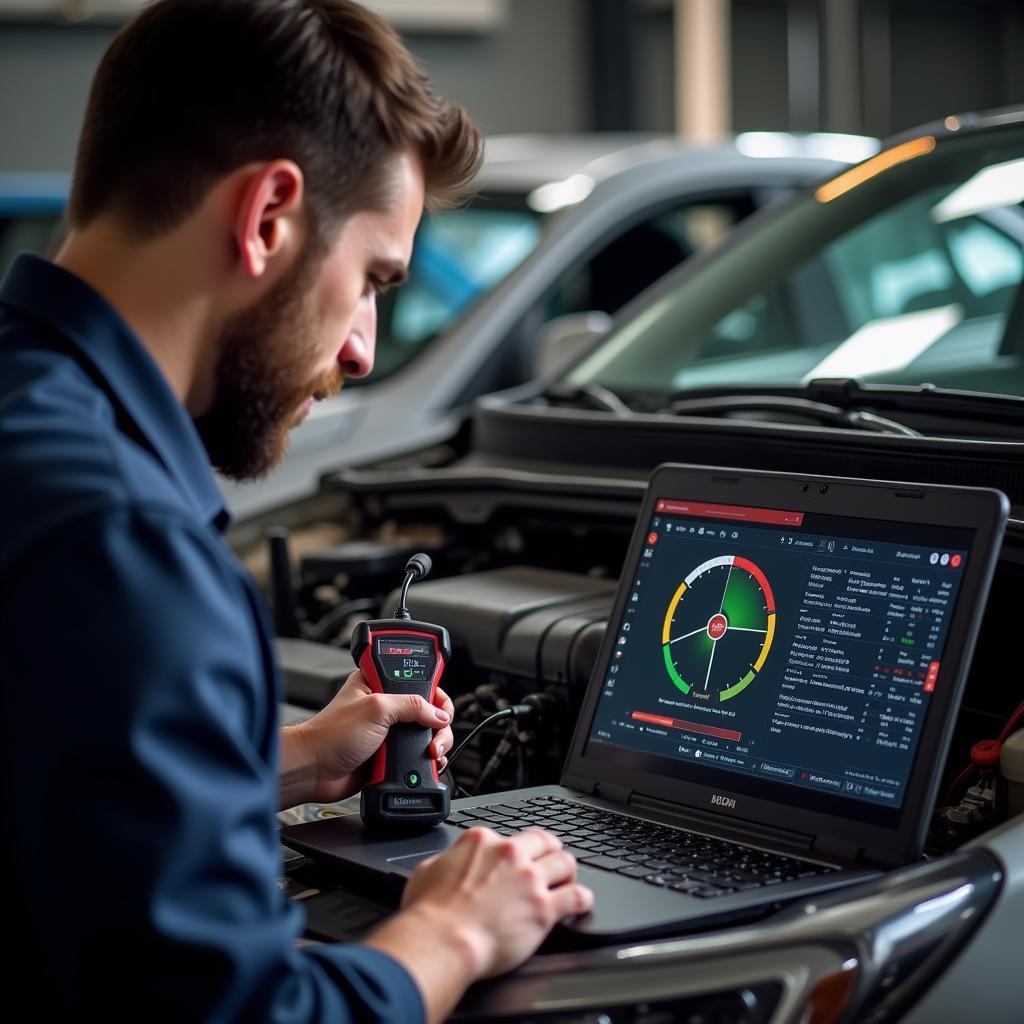Today’s vehicles are technological marvels, relying heavily on sophisticated electrical systems for everything from engine management to infotainment. This intricate network of sensors, actuators, and control units can be overwhelming to diagnose when problems arise. That’s where Car Electrics Diagnostics come in, providing a systematic approach to pinpoint and resolve electrical faults effectively.
Understanding Car Electrics Diagnostics
Car electrics diagnostics involve using specialized tools and techniques to identify issues within a vehicle’s electrical system. Unlike mechanical problems that often manifest as physical symptoms, electrical faults can be elusive and challenging to trace.
A comprehensive car electrics diagnostic typically includes:
- Visual Inspection: Trained technicians begin by visually examining the wiring, connectors, fuses, and other electrical components for signs of damage, corrosion, or loose connections.
- Computerized Diagnostics: Modern vehicles are equipped with On-Board Diagnostics (OBD) systems. Technicians use OBD-II scanners to retrieve diagnostic trouble codes (DTCs) stored in the vehicle’s computer, providing valuable clues about the nature of the electrical fault.
- Component Testing: Multimeters and other diagnostic equipment are employed to test the functionality of individual components, such as sensors, actuators, relays, and wiring harnesses. This step helps isolate the faulty component within the electrical circuit.
The Importance of Accurate Diagnostics
Accurate car electrics diagnostics are paramount for several reasons:
- Targeted Repairs: Pinpointing the root cause of an electrical issue prevents unnecessary part replacements, saving both time and money for vehicle owners.
- Safety Assurance: Electrical faults can compromise critical safety systems, such as airbags, anti-lock brakes, and electronic stability control. Timely and accurate diagnostics are crucial for ensuring the vehicle’s safe operation.
- Enhanced Vehicle Performance: A properly functioning electrical system is essential for optimal engine performance, fuel efficiency, and emissions control.
 Mechanic Performing Car Electrics Diagnostics
Mechanic Performing Car Electrics Diagnostics
Common Car Electrics Diagnostic Challenges
Car electrics diagnostics can present unique challenges, even for experienced technicians. Some common hurdles include:
- Intermittent Faults: Electrical problems that occur sporadically can be difficult to replicate and diagnose.
- Complex Wiring Systems: Modern vehicles have intricate wiring harnesses with numerous connections and circuits, making it challenging to trace electrical paths.
- Software-Related Issues: Increasingly, electrical faults stem from software glitches within the vehicle’s control units. Diagnosing and resolving such issues often require specialized software and programming knowledge.
The Future of Car Electrics Diagnostics
The automotive industry’s rapid technological advancements continue to shape the future of car electrics diagnostics. Key trends include:
- Increased Electrification: As electric vehicles (EVs) and hybrids gain popularity, the demand for specialized diagnostic tools and expertise in high-voltage systems will rise.
- Data-Driven Diagnostics: Advanced diagnostic software will leverage cloud computing and machine learning to analyze vast amounts of vehicle data, enabling more accurate and predictive diagnostics.
- Remote Diagnostics: Connected car technologies will facilitate remote diagnostics, allowing technicians to remotely access vehicle data, perform software updates, and even resolve certain electrical issues without physical access to the vehicle.
Conclusion
Car electrics diagnostics play a vital role in keeping modern vehicles running smoothly and safely. As automotive technology evolves, so too will the tools and techniques used to diagnose and repair complex electrical systems. By staying abreast of industry advancements and employing a systematic approach, technicians can effectively unravel the mysteries of car electrics and ensure optimal vehicle performance.

Leave a Reply